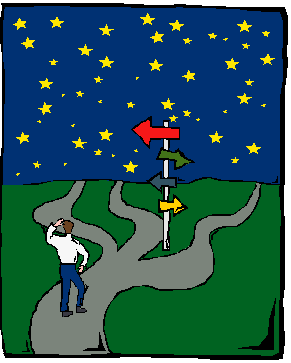
I’ve answered this question before but this article from the Philly Inquirer does a nice job of explaining:
Fifteen years ago, Susan Cole was a pastor with a troubling dilemma: She felt unable to pray. It was a stressful time in her parish at Arch Street United Methodist Church in Center City, and Cole felt her anxiety climbing. She tried closing her eyes and focusing on a meaningful passage of Scripture. She tried waking before dawn to pray. All that did was make her tired.
“I was a mess,” she recalls. “I would feel myself working really hard, I’d get more anxious and not feel any connection to God.”
Finally Cole found an adviser, a Roman Catholic nun, and began meeting with her. The woman listened closely as Cole described her spiritual anguish; one day she asked Cole to read aloud from Colossians. “She paid very close attention to where my voice shifted. She said, ‘Go back to that line and read it again.’ She kept leading me deeper and deeper, to a place where I felt very sad and lonely, and there, I could feel God’s spirit.”
Almost immediately, Cole’s prayer life unclogged. “It felt like magic: I go to see [my adviser] and my spirit gets revitalized.”
Cole, 64, now knows the process wasn’t magic – it was spiritual direction, an ancient practice with Christian roots that has recently seen a revival among contemporary seekers from all faiths, including some who don’t necessarily believe in God. In a culture where people readily engage physical trainers to hone their bodies and psychotherapists to untangle their neuroses, an increasing number are looking to spiritual directors as “spotters” for their souls.
About 300 training programs in spiritual direction exist worldwide, housed in universities, seminaries, and independent retreat centers. Spiritual Directors International, a 20-year-old organization based in Bellevue, Wash., has seen its membership swell from 4,000 in 2002 to 7,000 in 2008. There are even YouTube videos explaining and promoting the practice.
“I have seen a huge rise in awareness” of spiritual direction, says Liz Ward, director of the spiritual guidance program at the Shalem Institute in Bethesda, Md., which draws students of numerous faiths including Jews, Buddhists, Baptists, and Roman Catholics to its two-year program.
Spiritual directors typically meet monthly with their directees, who may or may not share the same religious background; the relationship can continue for years. Unlike psychotherapy, which is problem-based and designed to alleviate distress, spiritual direction doesn’t aim to “fix” anything. Instead, it offers people a place to talk about their spiritual lives without fear of judgment. For some, that means discussing God or prayer in the context of their faith; others use language such as “the yearning of the soul.”
In short, spiritual directors, like myself, try to companion people, to unearth where they might be seeing God working in their lives. We ask good questions and provide fewer answers–rather we help you to find some guidance ‘with God’s help” by looking more deeply at where God may be working in your life or where you may struggle to see God lurking in the background.
If you’d like to find a spiritual director in your area check out Spiritual Directors International and look at their blog as well.